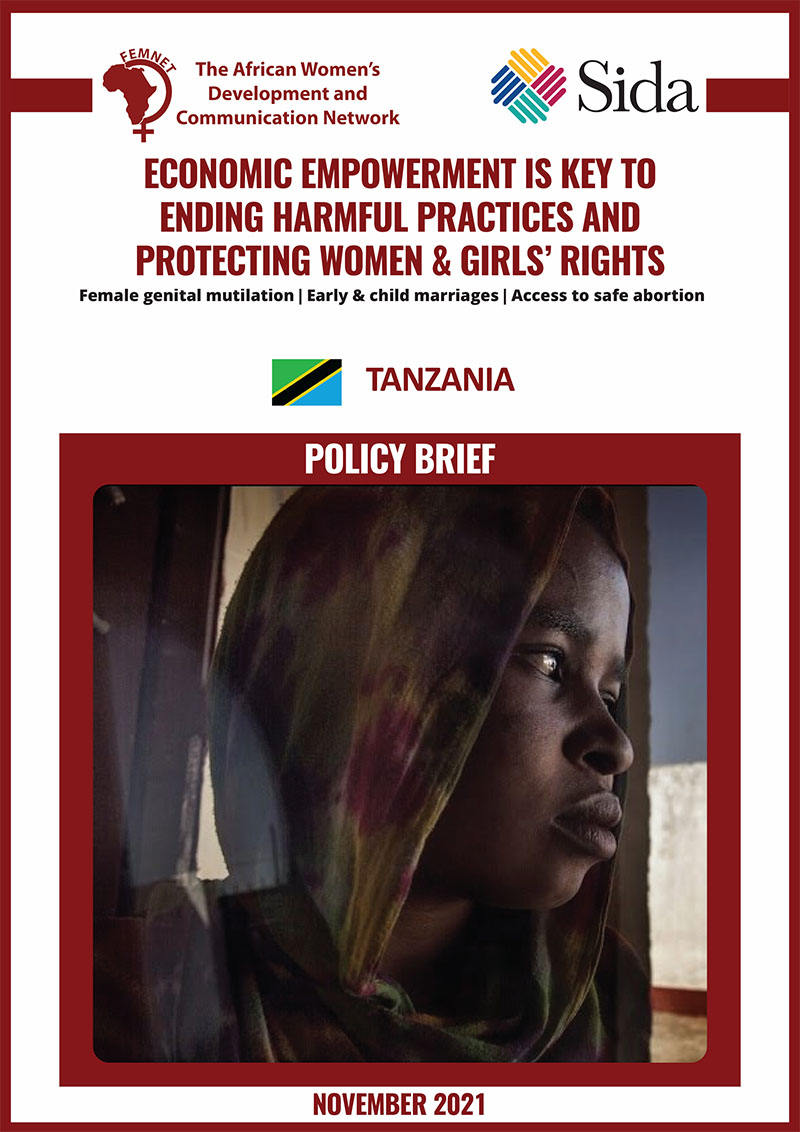
Economic empowerment is key to ending harmful practices and protecting women & girls’ rights – Tanzania
This policy brief builds on evidence from the review of key legal, policy and programmatic efforts for ending early child and forced marriages, Female Genital Mutilation (FGM) and promoting access to abortion services. In Tanzania, Gender Based Violence (GBV) is widespread. In the 2010 TDHS, over 20% of Tanzanian women aged 15-49 years reported having experienced sexual violence in their lifetime and nearly 40% reported having experienced physical violence. The same survey showed that 44% of every-married women had experienced physical and or sexual violence from an intimate partner in their lifetime. The issues focused on in this policy brief are serious common practices that violate women and girls’ human rights.
To redress the three vices concerted policy reforms through strategic advocacy and community level social behaviour change communication efforts are critical for the promotion of comprehensive Sexual Reproductive Health Rights (SRHR). The impact of COVID-19 is explored to determine any impact on promoting or preventing the harmful practices, un/under reporting and subsequently propelling the continuation of child marriages, female genital mutilation prevention and limited access to safe abortion services in Tanzania. This paper will contribute to achieving major advocacy priorities in the Strategic Plan for the African Women’s Development and Communication Network (FEMNET) Strategic Plan (2020-2029), and the priorities of the Swedish International Development Cooperation Agency (SIDA).
